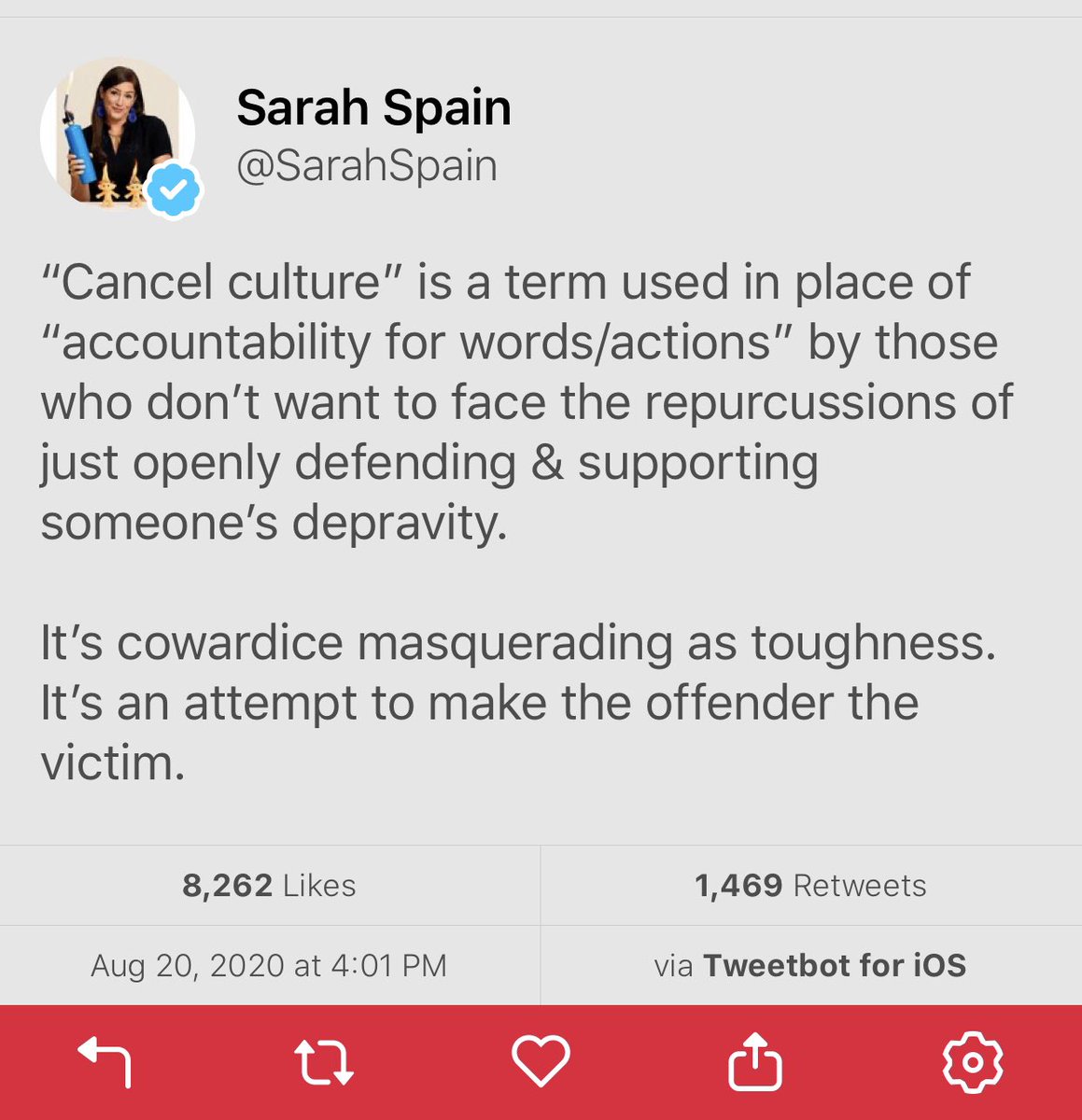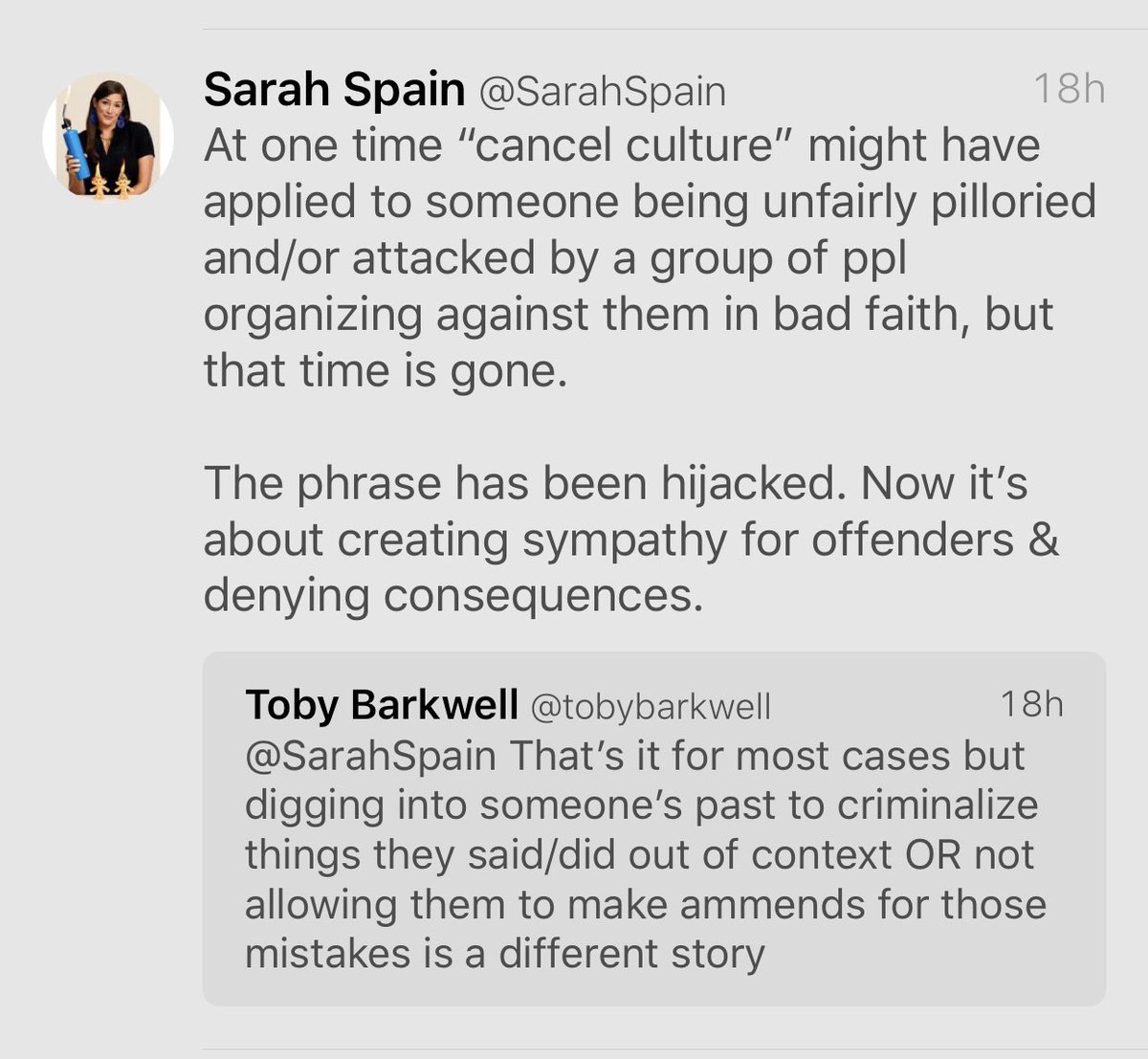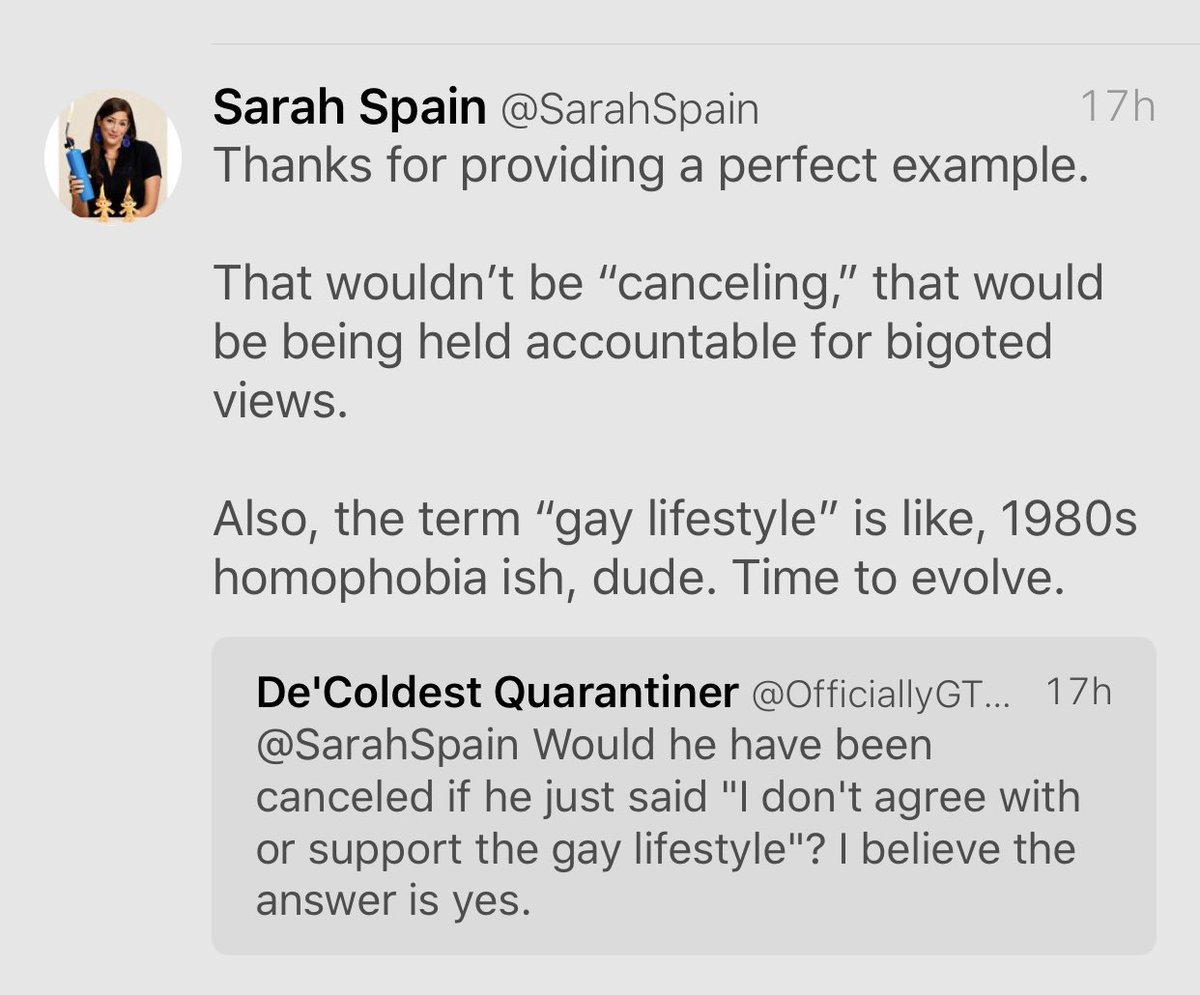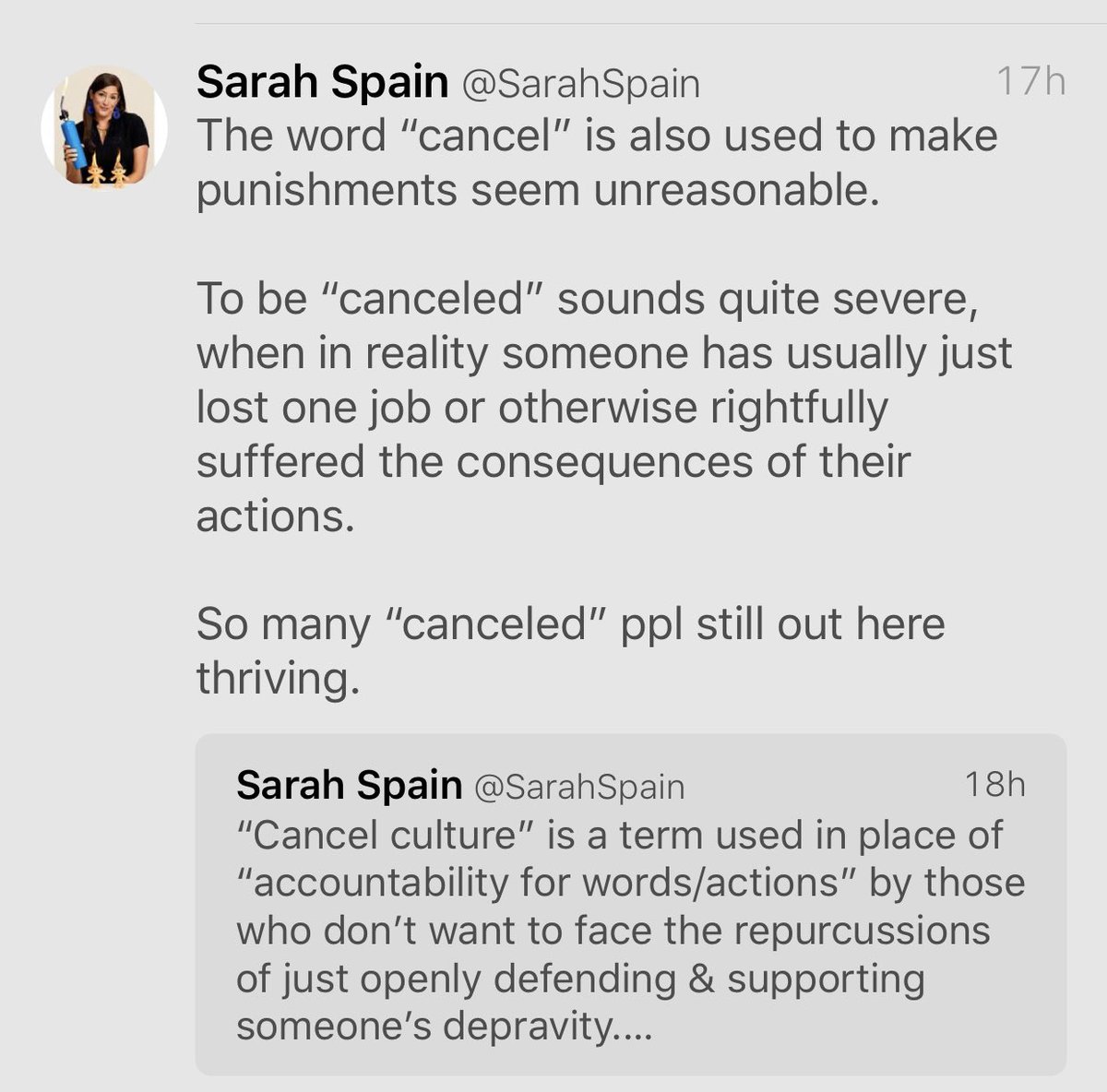Since my tweet got shared by someone w/ a ton of followers without context (it was in response to a reporter’s defense of Thom Brennaman, claiming “cancel culture” got him) & some of the many responses seemed genuinely interested in discussing, some final thoughts on this: (1/)
The phrase “Cancel Culture” started its peak during #MeToo  when criminals/harassers got their deserved comeuppance.
when criminals/harassers got their deserved comeuppance.
It was an evolution of the already-established, oft-cruel social media act of public shaming & piling on. (Remember Justine Sacco? https://www.nytimes.com/2015/02/15/magazine/how-one-stupid-tweet-ruined-justine-saccos-life.html)
(2/)
 when criminals/harassers got their deserved comeuppance.
when criminals/harassers got their deserved comeuppance. It was an evolution of the already-established, oft-cruel social media act of public shaming & piling on. (Remember Justine Sacco? https://www.nytimes.com/2015/02/15/magazine/how-one-stupid-tweet-ruined-justine-saccos-life.html)
(2/)
Then, backlash. People hijacked the phrase “Cancel Culture” to defend people being held accountable for bad acts because they didn’t like the idea that bigoted language & harassing behavior was actually being policed. They didn’t like that more progressive ideas of what’s (3/)
offensive or problematic became mainstream. Didn’t like that the marginalized had power. By calling reactions “PC” & labeling the deserved consequences ppl faced “canceling” they could claim a mob “ruined their lives” (even as many people stayed rich & successful) instead of (4/)
acknowledging that actions have consequences.
“[W]hat people do when they invoke dog whistles like ‘cancel culture’ & ‘culture wars,’” Danielle Butler wrote in 2018 for the Root, “is illustrate their discomfort with the kinds of people who now have a voice & their audacity (5/)
“[W]hat people do when they invoke dog whistles like ‘cancel culture’ & ‘culture wars,’” Danielle Butler wrote in 2018 for the Root, “is illustrate their discomfort with the kinds of people who now have a voice & their audacity (5/)
to direct it towards figures with more visibility & power.”
Understanding the power of social media & public pressure, some rightfully pushed for long-known bad actors to be held responsible (in part b/c going through traditional gate keepers can sometimes prove difficult). (6/)
Understanding the power of social media & public pressure, some rightfully pushed for long-known bad actors to be held responsible (in part b/c going through traditional gate keepers can sometimes prove difficult). (6/)
Others acted in bad faith, trying to stir up an angry mob to “cancel” people for decades-old comments or even create campaigns based on lies to try to take down companies, people, etc with opposing political views.
All these disparate things get labeled “Cancel culture” and (7/)
All these disparate things get labeled “Cancel culture” and (7/)
now the phrase has lost its meaning. It’s now so muddy, it’s rarely received as intended and it’s often misapplied.
For instance: “Cancel culture” isn’t coming for Brennaman. He did something inexcusable at work, on the air, and is being punished for it. Those yelling “CC” (8/)
For instance: “Cancel culture” isn’t coming for Brennaman. He did something inexcusable at work, on the air, and is being punished for it. Those yelling “CC” (8/)
are doing so to try to make Brennaman the victim because they condone homophobic slurs & want to push back on the ways our society & culture are evolving & demanding respect and equality of treatment for marginalized people. (9/)
“Cancel culture” also isn’t telling people not to buy Goodyear or Goya. Supporting or boycotting a company because of the owner’s beliefs or company ethos & practices has always existed. It’s just easier now to learn about those owners/practices & spread the word via social (10/)
(not to mention weirder than ever before because of unlikely ppl like POTUS getting involved & outlandish conspiracy theories getting circulated).
There are plenty of problems w/ internet vigilante justice, including unsourced info, blatant lies, etc but we need to use (11/)
There are plenty of problems w/ internet vigilante justice, including unsourced info, blatant lies, etc but we need to use (11/)
nuance & specifics & context for each individual case and throw out the phrase “Cancel Culture” altogether. Which was my original point.
Defending someone who has been deservedly punished by blaming “Cancel Culture” is disingenuous BS. Not all will agree that slurs should (12/)
Defending someone who has been deservedly punished by blaming “Cancel Culture” is disingenuous BS. Not all will agree that slurs should (12/)
be condemned and punished, not all will want to evolve with society on issues of equality, but blaming “CC” for someone being on the wrong side of history is a desperate last grab as society passes you by.
We can have real, substantive conversations about what punishments (13/)
We can have real, substantive conversations about what punishments (13/)
fit which crimes, but companies have always had a right to fire, suspend or otherwise punish ppl who don’t represent them well, who harass or rape, who alienate a customer base or spread bigoted opinions. That’s not cancel culture, that’s corporate culture. And that’s LIFE. (14/)
As a society we’re dying to forgive and give second chances — that’s been made clear across every industry for as long as time. So if you do the work, be better, feel true contrition & learn why you’re wrong, society/your community will usually welcome you back. Can’t skip (15/)
those steps, though. Can’t lash out & blame others when there are consequences to your actions.
Hopefully when we call people out for their missteps & problematic behaviors, we do so with atonement & transformation in mind, not with a cruel glee in watching someone fall. (16/)
Hopefully when we call people out for their missteps & problematic behaviors, we do so with atonement & transformation in mind, not with a cruel glee in watching someone fall. (16/)
And hopefully we stop using the term “Cancel Culture.” In my opinion, it’s irretrivably lost. Stop using it and instead be specific & nuanced in describing what someone said or did, what happened to them because of it, and how they & we can learn from it.
Have a great day. Fin.
Have a great day. Fin.

 Read on Twitter
Read on Twitter





